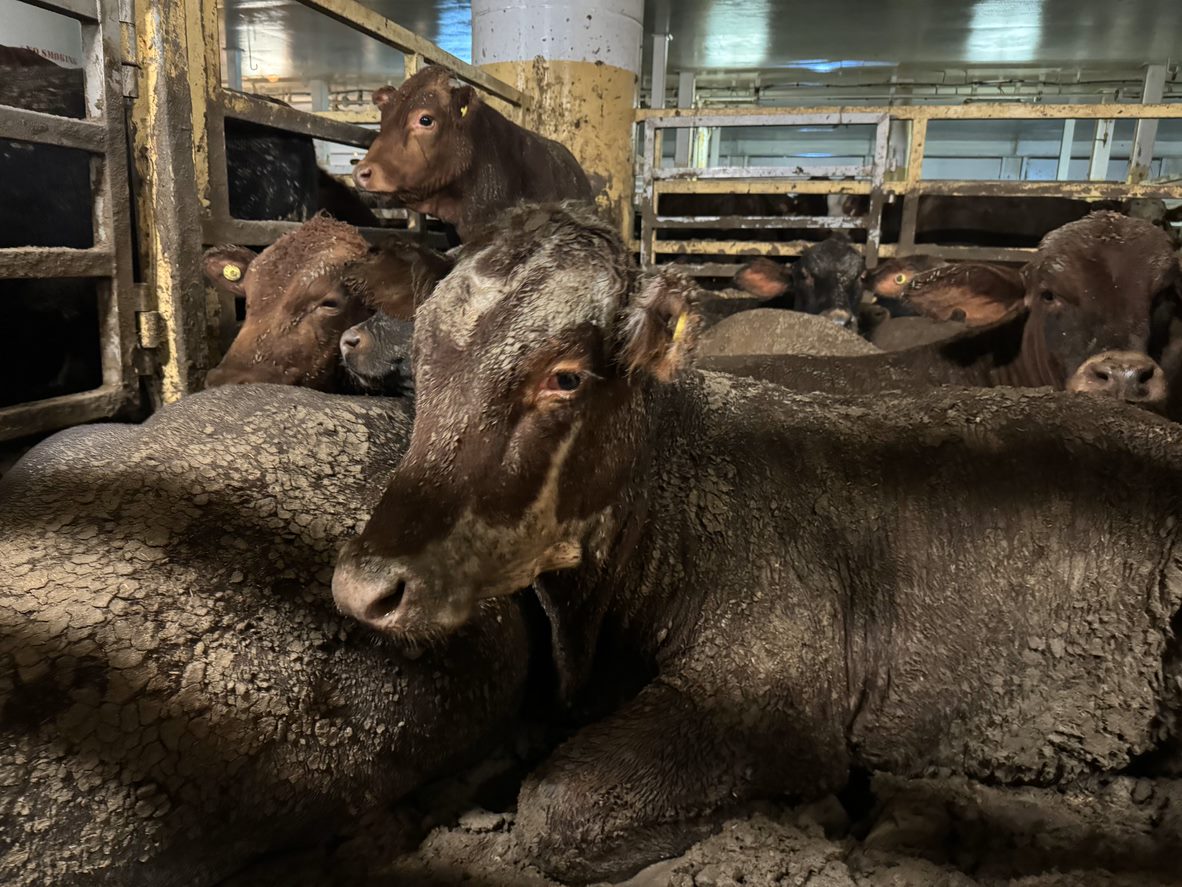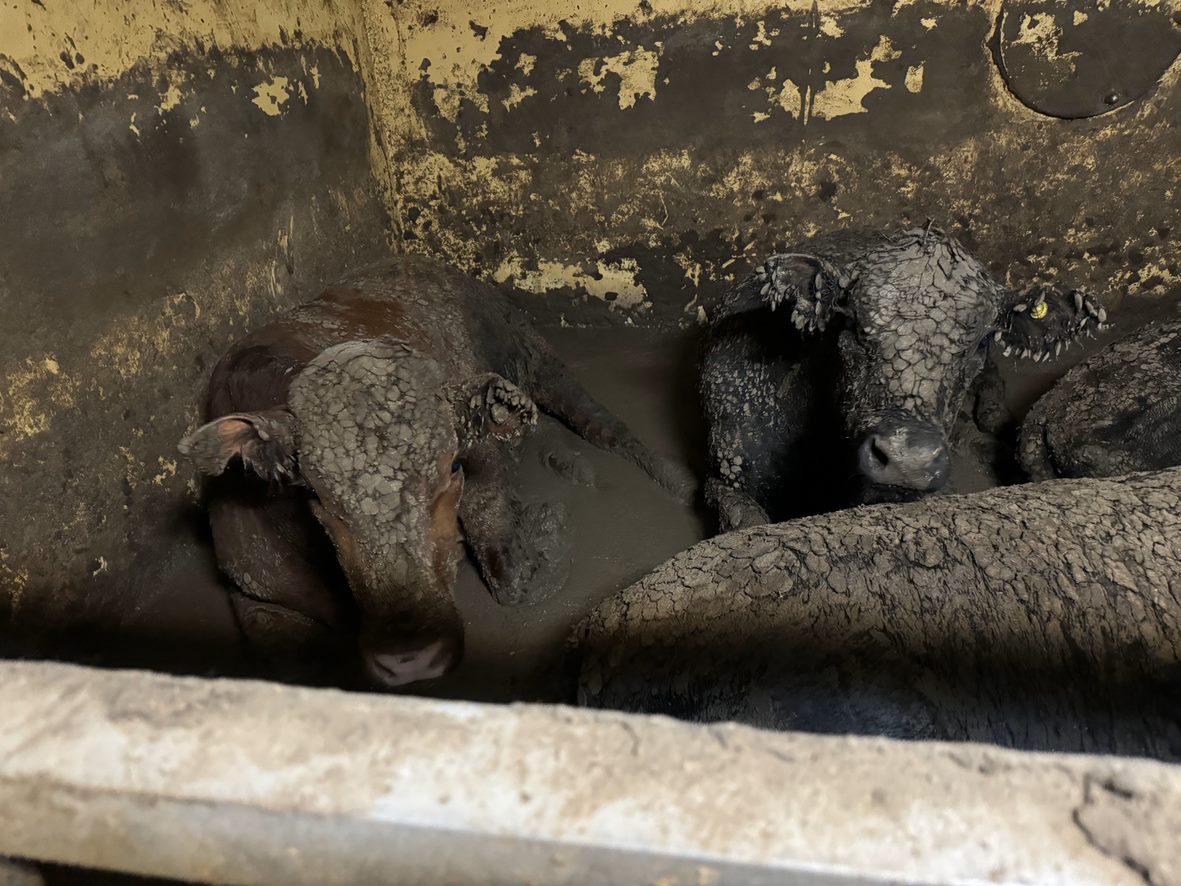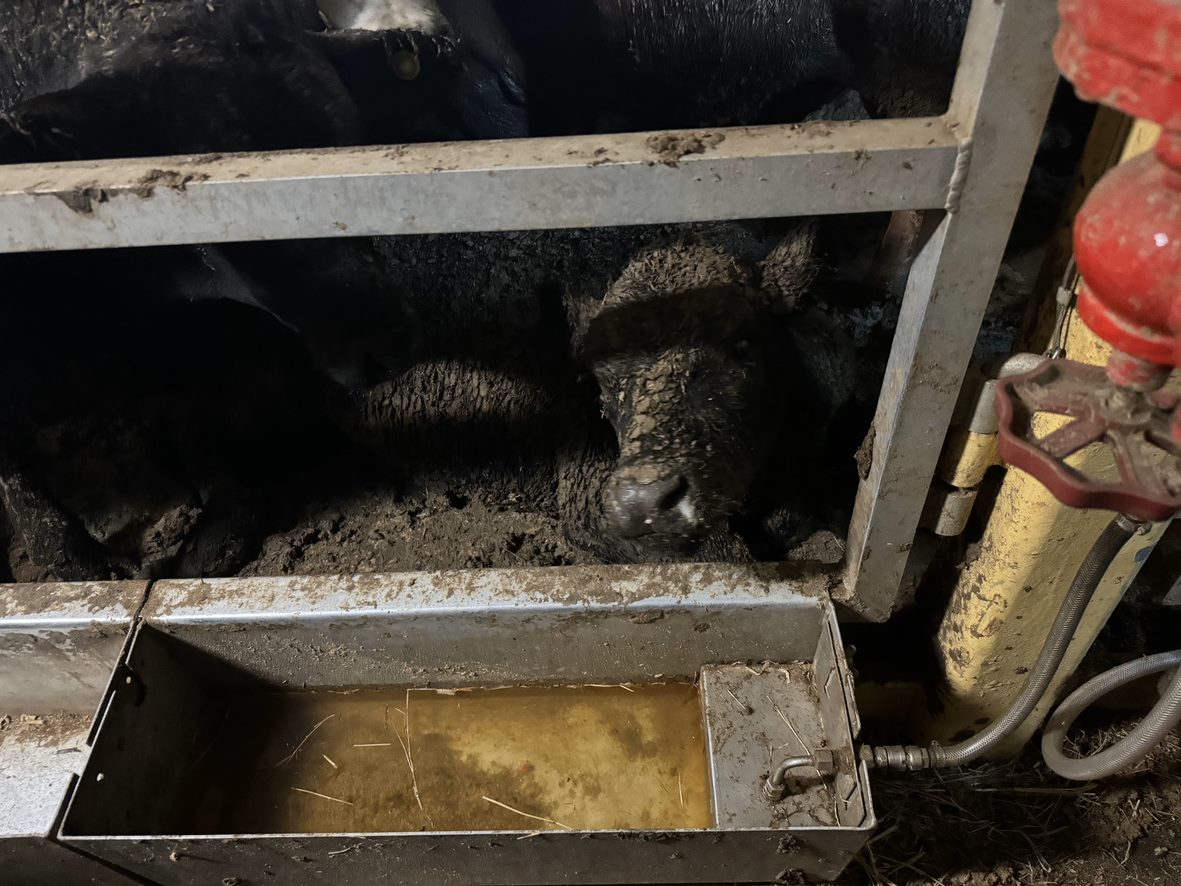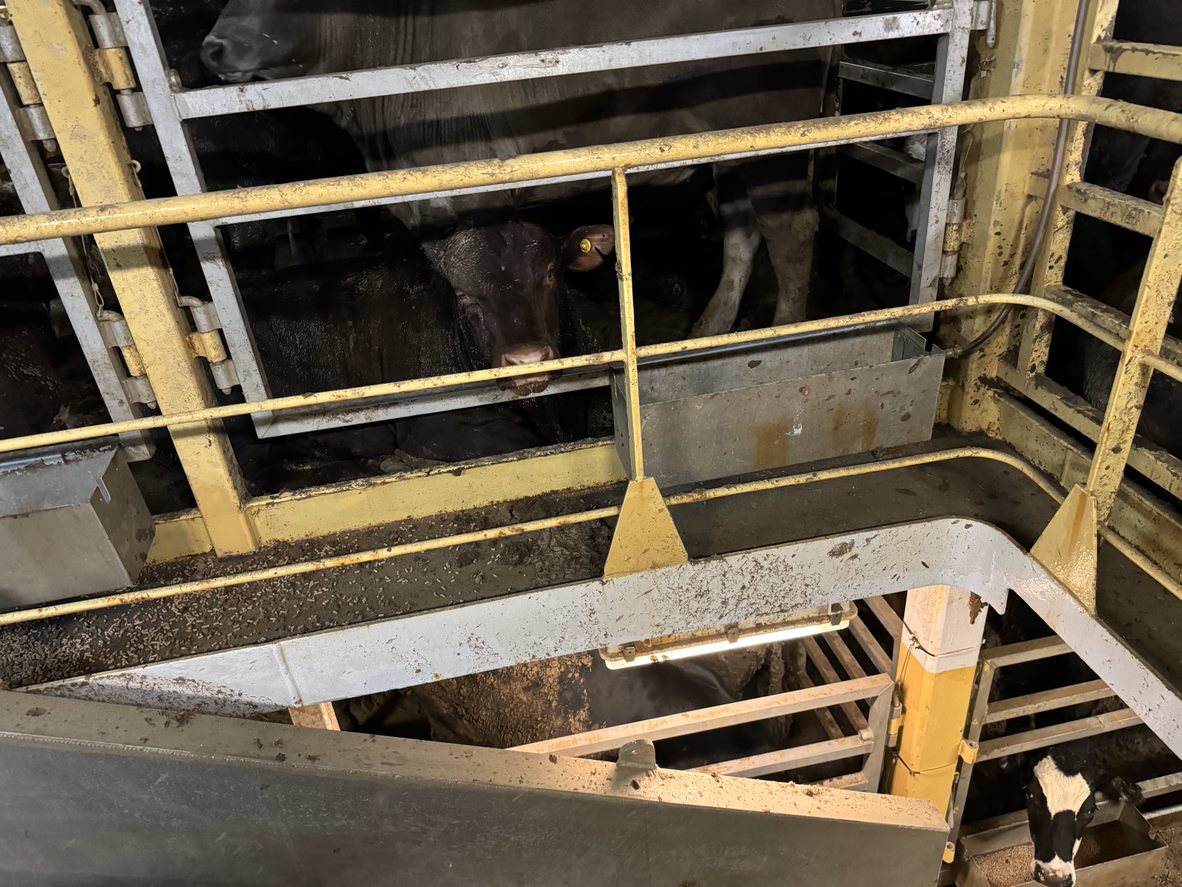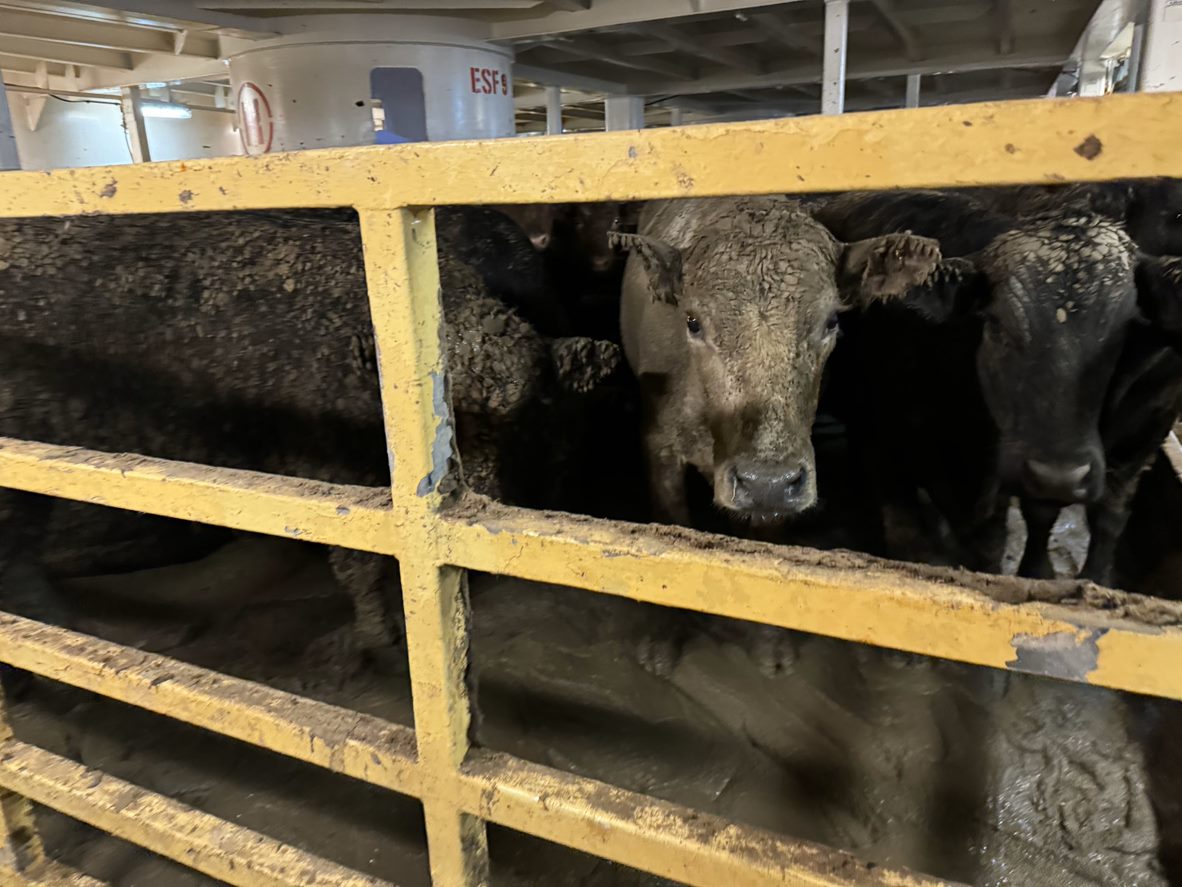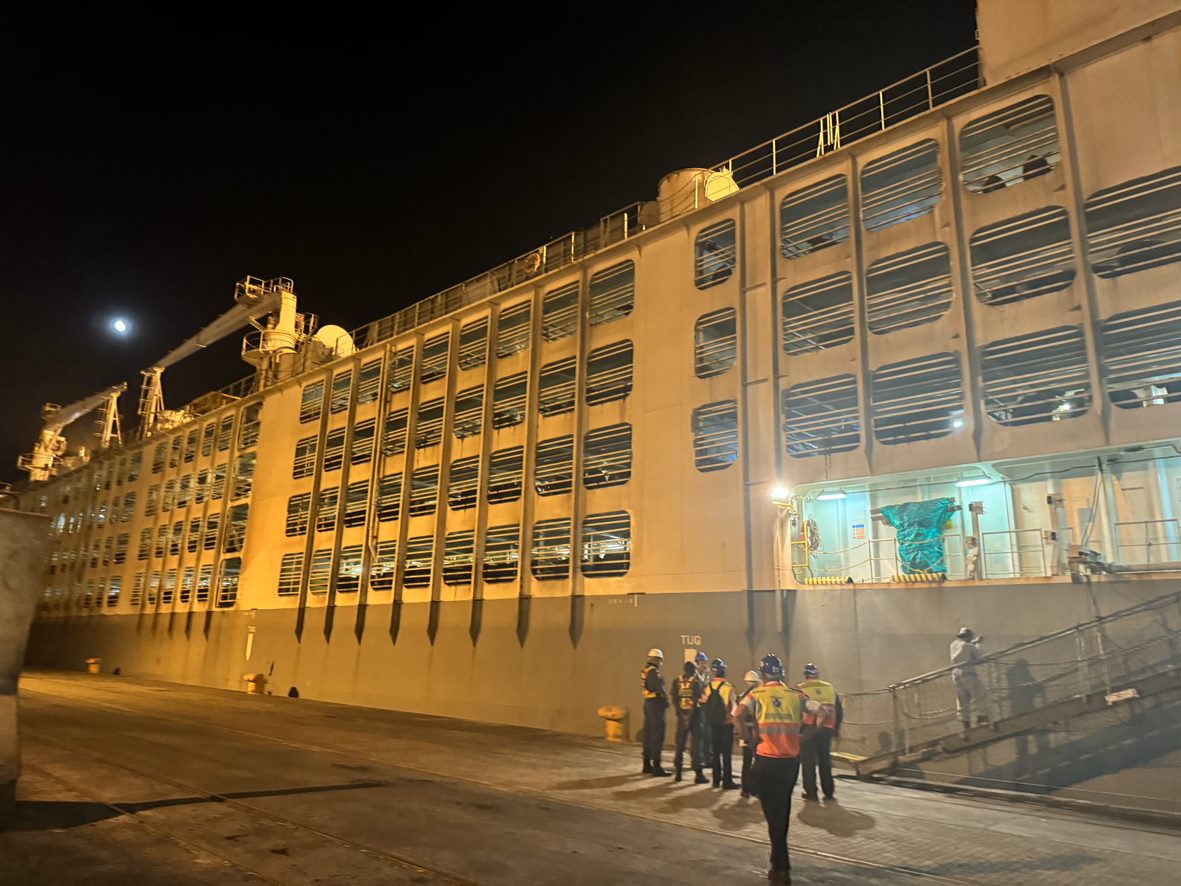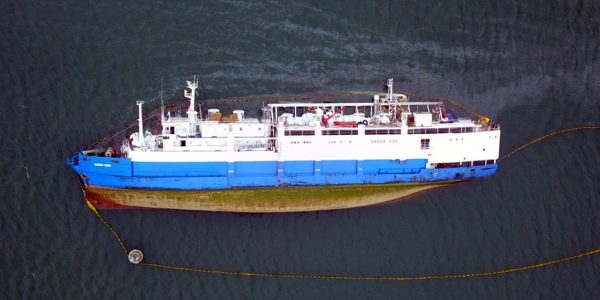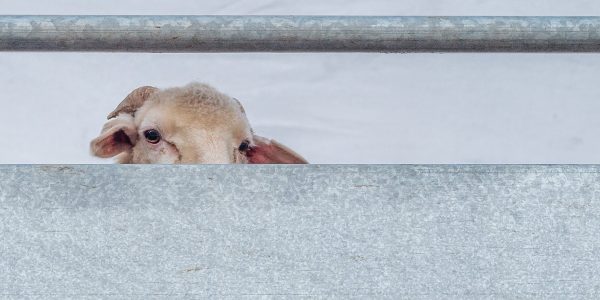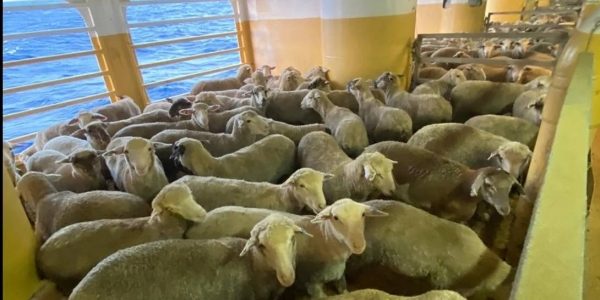Cattle had been standing, eating, resting and sleeping in the build-up of urine and faeces for over two weeks, and their journey wasn’t over yet. For animals confined in barren pens on gruelling live export shipments, the stench is just one aspect of the discomfort and suffering that only worsens as each day goes by.
Soon after the live export ship, Al Kuwait, docked at Cape Town Harbour, there were reports of a “sewage smell blanketing parts of the city.” The vessel was travelling from Brazil to Iraq, and docked only to load more feed for the animals. In other words, improving the appallingly unhygienic conditions for the animals wasn’t on the agenda, only the bare necessity of food to keep them alive – until they reached their destination for slaughter.



